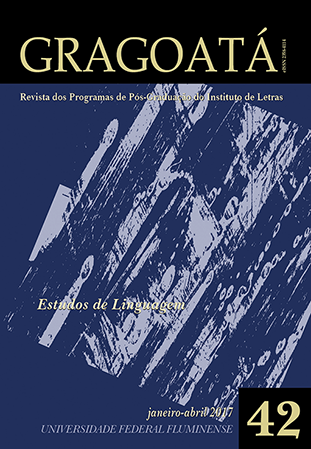The modern myth of François Villon and the origin of ancient Argot
DOI:
https://doi.org/10.22409/gragoata.v22i42.33484Keywords:
François Villon. Ballads in jargon. Ancient Argot. Jargon of the criminals.Abstract
This paper attempts to reconstruct the origin of the ancient Argot, defined by the diachronic linguistics of the early twentieth century as a conventional and secret sociolect. This definition is based, above all, on the description by a medieval legal document of the jargon spoken by a gang of criminals called the Coquillards. On the other hand, this definition was used to interpret the most important composition of the period to explore the jargon literarily – the Ballads in jargon, attributed to the well-known criminal of the time François Villon (1431–?). It is intended to show that the origin of the ancient Argot is inseparable from the modern myth about François Villon, considered by its editors and translators as the supposed empirical author of these ballads.
---
DOI: http://dx.doi.org/10.22409/gragoata.2017n42a854
Downloads
Downloads
Published
How to Cite
Issue
Section
License
Authors who publish in Gragoatá agree to the following terms:
The authors retain the rights and give the journal the right to the first publication, simultaneously subject to a Creative Commons license CC-BY-NC 4.0, which allows sharing by third parties with due mention to the author and the first publication by Gragoatá.
Authors may enter into additional and separate contractual arrangements for the non-exclusive distribution of the published version of the work (for example, posting it in an institutional repository or publishing it in a book), with recognition of its initial publication in Gragoatá.

Gragoatá is licensed under a Creative Commons - Attribution-NonCommercial 4.0 International.











